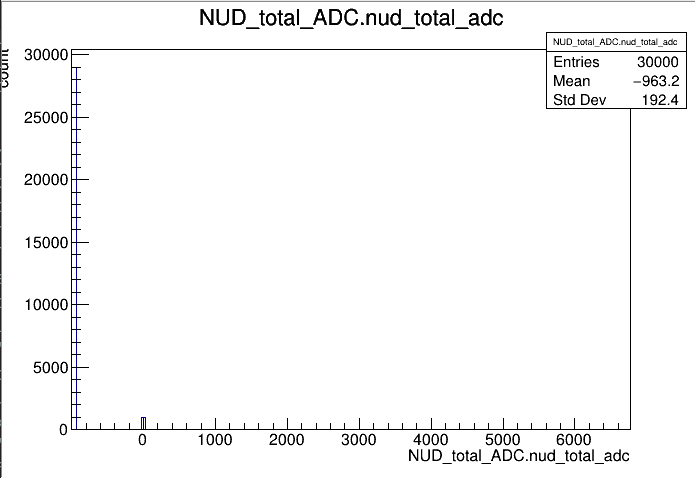Great, thanks, that is a very interesting library!
I’m building the code using a makefile and I got these errors when I add the data frame header: **
#include <ROOT/RDataFrame.hxx>
out.txt (2.6 MB)
This is the makefile:
MKDIR_P ?=mkdir -p
COMPILER ?=g++
TESTS ?=true
TOP ?=$(shell pwd)
HAVE_TERM :=$(shell echo $$TERM)
#undef to none (linux)
ifndef HAVE_TERM
HAVE_TERM = none
endif
#dump to none (macOS)
ifeq ($(HAVE_TERM),dumb)
HAVE_TERM = none
endif
#dependencie
DIPS_INCLUDE = $(shell root-config --incdir)
DIPS_LIBS = $(shell root-config --ldflags) $(shell root-config --libs)
S_DIR = $(TOP)/source/
S_INC = $(TOP)/include/
DEBUG_DIR = Debug/obj
RELEASE_DIR = Release/obj
DEBUG_PROG = Debug/Kompressor
RELEASE_PROG = Release/Kompressor
# Don't compile specific files
FILTER :=
# Subdirs
SUB_DIRS := $(wildcard $(S_DIR)/**/.)\
$(wildcard $(S_DIR)/**/**/.)
SUB_DIRS := $(subst $(S_DIR)/,,$(SUB_DIRS))
####################################################
# C FLAGS
C_FLAGS = -fPIC -D_FORCE_INLINES
# CPP FLAGS
CC_FLAGS = -std=c++14 -I$(S_INC)
# RELEASE_FLAGS
RELEASE_FLAGS = -O3
# DEBUG_FLAGS
DEBUG_FLAGS = -g -D_DEBUG -Wall -Wno-unknown-pragmas
# Linker
LDFLAGS :=
#add dips
ifneq ($(DIPS_INCLUDE),)
CC_FLAGS += -I$(DIPS_INCLUDE)
LDFLAGS += $(DIPS_LIBS)
endif
####################################################
# Flags by OS
ifeq ($(shell uname -s),Linux) # LINUX
# threads
C_FLAGS += -pthread
LDFLAGS += -lpthread
endif
####################################################
# All source files
ALL_SOURCE_FILES := $(wildcard $(S_DIR)/*.cpp)\
$(wildcard $(S_DIR)/**/*.cpp)\
$(wildcard $(S_DIR)/**/**/*.cpp)
####################################################
# Object files
SOURCE_FILES = $(filter-out $(FILTER), $(ALL_SOURCE_FILES))
SOURCE_DEBUG_OBJS = $(subst $(S_DIR),$(DEBUG_DIR),$(subst .cpp,.o,$(SOURCE_FILES)))
SOURCE_RELEASE_OBJS = $(subst $(S_DIR),$(RELEASE_DIR),$(subst .cpp,.o,$(SOURCE_FILES)))
SOURCE_DEPENDENCY_FILES = $(filter-out $(FILTER), $(ANYOPT_SRC))
SOURCE_DEBUG_DEPENDENCY_OBJS = $(subst $(S_DIR),$(DEBUG_DIR),$(subst .cpp,.o,$(SOURCE_DEPENDENCY_FILES)))
SOURCE_RELEASE_DEPENDENCY_OBJS = $(subst $(S_DIR),$(RELEASE_DIR),$(subst .cpp,.o,$(SOURCE_DEPENDENCY_FILES)))
####################################################
# Output dirs
O_DEBUG_DIR = $(TOP)/$(DEBUG_DIR)
O_RELEASE_DIR = $(TOP)/$(RELEASE_DIR)
O_DEBUG_PROG = $(TOP)/$(DEBUG_PROG)
O_RELEASE_PROG = $(TOP)/$(RELEASE_PROG)
##
# Support function for colored output
# Args:
# - $(1) = Color Type
# - $(2) = String to print
ifneq ($(HAVE_TERM),none)
define colorecho
@tput setaf $(1)
@echo $(2)
@tput sgr0
endef
else
define colorecho
@echo $(2)
endef
endif
# Color Types
COLOR_BLACK = 0
COLOR_RED = 1
COLOR_GREEN = 2
COLOR_YELLOW = 3
COLOR_BLUE = 4
COLOR_MAGENTA = 5
COLOR_CYAN = 6
COLOR_WHITE = 7
all: directories show_debug_flags debug release clean
directories: debug_make_dirs release_make_dirs
rebuild: clean directories debug release
rebuild_debug: clean_all_debug debug
rebuild_release: clean_all_release release
debug: directories show_debug_flags $(SOURCE_DEBUG_OBJS) $(SOURCE_DEBUG_DEPENDENCY_OBJS) $(TEST_SOURCE_DEBUG_OBJS)
$(COMPILER) $(C_FLAGS) $(CC_FLAGS) $(SOURCE_DEBUG_OBJS) $(SOURCE_DEBUG_DEPENDENCY_OBJS) $(LDFLAGS) -o $(O_DEBUG_PROG)
release: directories show_release_flags $(SOURCE_RELEASE_OBJS) $(SOURCE_RELEASE_DEPENDENCY_OBJS) $(TEST_SOURCE_RELEASE_OBJS)
$(COMPILER) $(C_FLAGS) $(CC_FLAGS) $(SOURCE_RELEASE_OBJS) $(SOURCE_RELEASE_DEPENDENCY_OBJS) $(LDFLAGS) -o $(O_RELEASE_PROG)
# makedir
debug_make_dirs:
@${MKDIR_P} $(DEBUG_DIR)
@for dir in $(SUB_DIRS); do \
${MKDIR_P} $(DEBUG_DIR)/$$dir; \
done
# makedir
release_make_dirs:
@${MKDIR_P} $(RELEASE_DIR)
@for dir in $(SUB_DIRS); do \
${MKDIR_P} $(RELEASE_DIR)/$$dir; \
done
show_debug_flags:
$(call colorecho,$(COLOR_YELLOW),"[ Debug flags: $(C_FLAGS) $(CC_FLAGS) $(DEBUG_FLAGS) ]")
show_release_flags:
$(call colorecho,$(COLOR_YELLOW),"[ Release flags: $(C_FLAGS) $(CC_FLAGS) $(RELEASE_FLAGS) ]")
##################################################################################################################
# DEBUG
$(SOURCE_DEBUG_OBJS):
$(call colorecho,$(COLOR_GREEN),"[ Make debug object: $(subst $(DEBUG_DIR),,$(@:.o=.cpp)) => $(subst $(TOP)/,,$(@)) ]")
@$(COMPILER) $(C_FLAGS) $(CC_FLAGS) $(DEBUG_FLAGS) -c $(subst $(DEBUG_DIR),$(S_DIR),$(@:.o=.cpp)) -o $@
##################################################################################################################
# RELEASE
$(SOURCE_RELEASE_OBJS):
$(call colorecho,$(COLOR_GREEN),"[ Make release object: $(subst $(RELEASE_DIR),,$(@:.o=.cpp)) => $(subst $(TOP)/,,$(@)) ]")
@$(COMPILER) $(C_FLAGS) $(CC_FLAGS) $(RELEASE_FLAGS) -c $(subst $(RELEASE_DIR),$(S_DIR),$(@:.o=.cpp)) -o $@
# Clean
clean: clean_debug clean_release
clean_all: clean_all_debug clean_all_release
clean_debug:
$(call colorecho,$(COLOR_MAGENTA),"[ Delete debug obj files ]")
@rm -f -R $(O_DEBUG_DIR)
@rm -f $(ANYOPT_INC)/anyoption.o
clean_release:
$(call colorecho,$(COLOR_MAGENTA),"[ Delete release obj files ]")
@rm -f -R $(O_RELEASE_DIR)
@rm -f $(ANYOPT_INC)/anyoption.o
clean_all_debug:
$(call colorecho,$(COLOR_MAGENTA),"[ Delete debug obj files ]")
@rm -f -R $(O_DEBUG_DIR)
@rm -f $(ANYOPT_INC)/anyoption.o
$(call colorecho,$(COLOR_MAGENTA),"[ Delete debug executable files ]")
@rm -f -R $(O_DEBUG_PROG)
clean_all_release:
$(call colorecho,$(COLOR_MAGENTA),"[ Delete release obj files ]")
@rm -f -R $(O_RELEASE_DIR)
@rm -f $(ANYOPT_INC)/anyoption.o
$(call colorecho,$(COLOR_MAGENTA),"[ Delete release executable files ]")
@rm -f -R $(O_RELEASE_PROG)
while the code is that very simple:
#include "main.h"
int main(int argc, char** argv)
{
std::cout << "\nHello World\n";
return 0;
}
#ifndef MAIN_H
#define MAIN_H
#include <iostream>
#include <ROOT/RDataFrame.hxx>
#pragma once
#endif
I’m not understanding what is going on.
The same code build correctly on Mac…
